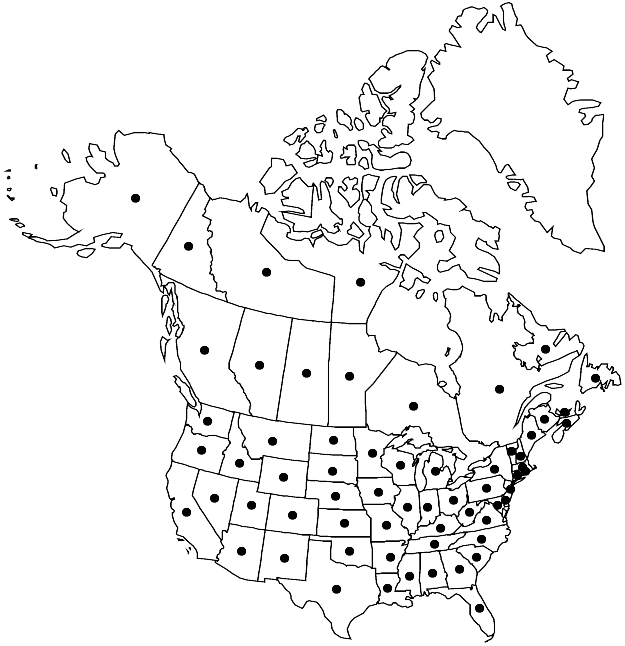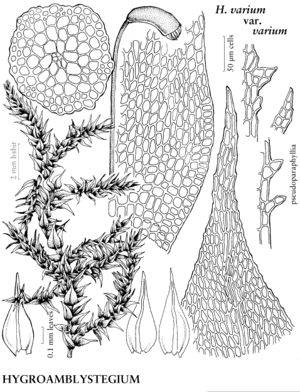Hygroamblystegium varium var. varium
Stem leaves not complanate, ovate-lanceolate to ovate-triangular, 0.6–2 mm; margins entire to denticulate; apex obtuse to acute; costa percurrent; alar cells somewhat differentiated, shorter than medial cells; medial laminal cells 10–40 × 5–10 µm, 3–5:1.
Habitat: Subxeric habitats, rock, tree trunks in hardwood mesic forests, marshes, fens, ponds, mountain fast-flowing streams
Elevation: low to high elevations (0-2500 m)
Distribution

Alta., B.C., Man., N.B., Nfld. and Labr., N.W.T., N.S., Nunavut, Ont., P.E.I., Que., Sask., Yukon, Ala., Alaska, Ariz., Ark., Calif., Colo., Conn., Del., Fla., Ga., Idaho, Ill., Ind., Iowa, Kans., Ky., La., Maine, Md., Mass., Mich., Minn., Miss., Mo., Mont., Nebr., Nev., N.H., N.J., N.Mex., N.Y., N.C., N.Dak., Ohio, Okla., Oreg., Pa., R.I., S.C., S.Dak., Tenn., Tex., Utah, Vt., Va., Wash., W.Va., Wis., Wyo., South America, Eurasia, s Africa, Pacific Islands (New Zealand), Antarctica.
Discussion
Variety varium is an exceedingly variable taxon occurring in a wide range of habitats. Leaf shape ranges from triangular with an apiculate apex to ovate-lanceolate with an obtuse apex; the latter morphology corresponds to what was previously called Hygroamblystegium fluviatile. The continuous range of variation of leaf shape, the presence of leaves with different shapes and morphologies of leaf apices on the same stem, as well as the large plasticity of this character, however, preclude any formal recognition of the different morphotypes exhibited by the taxon.
Selected References
None.
